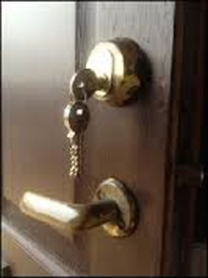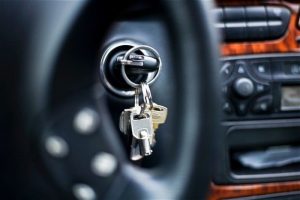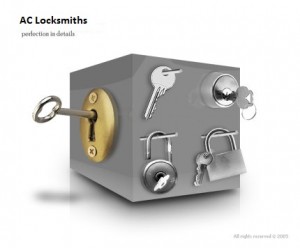Locks; spend to save. A little spent now – in time & money- can save you a lot more of both in the future.
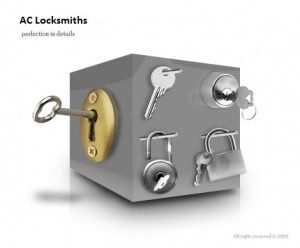
Do you have multi point locks? These are usually on UPVC doors or composite doors where you must lift the handle before locking. Increasingly, they are found on wooden doors as well.
Many of my call outs are to jobs where these have failed and the customer says to me something like; ‘I knew it was getting difficult, but then it just wouldn’t open.’ What happens then is I get the door open and must replace parts of the mechanism or the whole thing, depending on brand. The minimum part cost is £80, but it can go over £200. The sad thing is that in most cases, this cost is avoidable. It might be a case of re-aligning the door, servicing with a good oil or graphite, or clearing wasp cells (wooden doors).
As a rule of thumb your handles should be as easy to lift when the door is shut as they are when the door is closed. You can do the servicing yourself; All you need to do is firstly give the door a good clean all around the edges. Make sure all the holes in the frame are clear of debris, especially if you have a bolt that goes straight down. The holes for the bolt often get stones in which putt excess pressure on the mechanism.
Once everything is nice and clean, look at the front edge and lift the handle up and down a few times to see all the parts that move. You need to lubricate these moving parts twice a year. Best way to remember is do it when you change the clocks. Now push the handle down and hold it. The latch will have retracted and because it is wedge shaped, you will see a gap big enough for your lubricant straw. Push the straw in, squeeze for a few seconds and then work the handles up and down a few times to get the lubricant to all parts inside.
This is especially important if your home is near the sea as sea salt is very harsh. If you own a static caravan and the site management do not service doors for you, you will either need to make time to visit or invest in the services of someone who knows what they are doing.
If your mechanism is still difficult to operate when the door is closed, even after oiling, then you will need to think about door alignment. This is common in conservatories, and anywhere prone to ground movement. Some doors are easy to adjust, some are not, and old doors might need a hinge or two replacing. Look at your hinges. If all looks straight, then small adjustments might be needed. If you can see obvious buckling, then get the hinge sorted by a professional before it breaks the more expensive mechanism.
Even if you are a handy person yourself, finding exactly where the door needs adjusting can be daunting. I came across one I had not seen before in Docking the other day. It took a long time of trial and error to identify the part that was causing the problem. In this case the door itself had warped and while adjustments could be made, the customer had to accept that a part had to be removed completely to avoid having to buy a whole new door.
If after all this, your mechanism is still stiff, then there is something wrong with it. Floppy handles are another good indicator. You now have a choice. Get a professional locksmith in to change the mechanism while the door can be opened and he can get to everything easily or wait for it to go clunk when you have an important appointment and find he has to snap the cylinder, drill the handles or damage the door frame, all of which cost more to replace and fix.
These things happen always at the worst times. I remember at the height of the ambulance delays; an older customer in Holt was locked out because of lock failure. It was icy cold and slippery, as always, I asked if there was external power and so he started towards his garage which he had a key to and slipped over onto his back that had only recently been operated on.
The poor gentleman then had a three hour wait on cold ice while we waited for an ambulance. I couldn’t lift him myself for fear of doing more damage. The lock went at precisely the worst time possible and could have been avoided had the customers addressed the issue sooner. So next time you visit a vulnerable person, please do check their doors for them. Many think the issue is just that they are old.
One of my favourite things is seeing the look on someone’s face when they can suddenly easily use a door they have been struggling with for ages. But don’t call someone like me straight away. Just today, I returned to a lady in Walsingham who was having difficulty with her door that I had adjusted only recently. She showed me what she was doing, and I worked out she was just getting a little muddled with the operation. A quick lesson and write down of instructions and she was good to go again (no charge).
I know budgets are tight for many, but checking your doors now, might just save you a packet in the future – and checking on a vulnerable friend might save them more than just money.
Should you have any questions regarding the above or any other lock issues, please do not hesitate to contact me for a free consultation.
Locksmiths Top Tips For Locks and Security

1. Instead of leaving a key in your back door, take a back door key with you when you leave the house. Almost every time I attend an emergency where my customers have lost their keys, they show me the back door with the key in the other side. Carrying a key for the back door in a separate pocket to your front door key gives you a greater chance of being able to get in without waiting for a locksmith. It is also better for security because all the time a key is in your back door, a burglar can break in through a window and easily carry stuff out of your house through that back door!
Leaving keys in doors is good fire safety practice while people are in the property, but they should be removed from locks if the property is empty.
2. Oil your locks regularly – at least twice a year. The best way to remember is to do it every time you change your clocks, w
This is especially important if you live near the sea. Don’t just spray where the key goes in. Most locks have a latch that retracts when you pull the handle down, when the latch retracts, the wedge makes a gap for your oil or silicone spray. Spray for around 5 seconds to get plenty inside, then turn the key a few times to make sure the lubricant reaches all parts. If you have a locking mechanism with lift up handles, works the handles up and down a few times, but make sure you lubricate all moving parts (bolts, hooks, rollers, etc.)
3. Do not put your override keys to your safe inside the safe. Equally, do not leave the override keys anywhere in your property. A burglar can find those keys and get to your valuables. They will know the hiding places you think are sneaky.
Safe keys should be with a trusted friend or family member in an entirely separate property. Also, do not wait for the batteries to get low. Change them annually whether they need it or not. Always consult a security expert before buying a safe because they can advise you on the pitfalls many are trapped by. There is nothing worse than needing your passport from a safe you cannot access and finding out the safe expert cannot get to you for two days by which time, your plane has departed!
4. Please stop posting on social media all about your holiday whilst away. Your friends probably don’t care as much as you would like to think, but the burglar is very thankful you are advertising that your property is empty. Don’t ruin your holiday by coming back to find all your valuables have been taken. You can post your holiday highlights when you get back.
5. When you get extra keys cut, use the originals most. Badly cut keys ruin locks. Key cutters use generic key blanks made from cheaper metals. If you buy your locks from a locksmith, they can order branded keys made for the lock cut from superior metal. These will then be covered by guarantee. Once you use a poorly cut off brand key, and it damages the lock, you invalidate any guarantee given by your locksmith. So if you must get spares made, try to use the originals the most.
6. Be wary if you have a family member who suffers with dementia. This is a sensitive subject but I have experience of a good number of customers coming back to me because they have lost their keys. The excuses are often the same, with angry accusations at neighbours or carers who have ‘let themselves in and stolen my keys again.’ The last thing a locksmith wants is to take advantage of anyone with this awful condition, but we cannot change locks for free. We also cannot ask the customer for phone numbers of family members because it is not right to do so.
If your loved ones are getting forgetful and you notice new locks, firstly try and get a key for yourself. Then, see if you can find out which locksmith they used. I would be more than happy if you called me to say you are MR X’s son/daughter and that if Mr X should call me in a muddle, I should try and call you before setting off to change the lock again. Mr X will be far happier having you search for the key he has hidden and forgotten than me. I would expect any decent locksmith would feel the same.
7. Next to your mobile phone, your lock and keys are the things you use the most almost – every day for that majority of us. Treat them accordingly. When I take handles off of doors, I find a variety of spider carcasses, wasp larvae, rust and other muck. While unscrewing and re-screwing the fixings too many times is not good for the wood, occasional cleans behind the handles is not a bad idea. You might well discover broken springs and other nasties that need seeing to. Better to catch things early before they fail completely and you find yourself unable to get in.
Likewise, I have come across many a door where someone has simply painted over the lock while decorating. It doesn’t take many seconds to undo the screws and remove the lock while painting and even less to put a bit of masking tape over the area. Painting over the lock is not good. At best, the screws fill with paint and when you do need to take the lock out because it has failed, you cannot undo the clogged screws without extra effort. Locks might not be as exciting as a phone, but they are more important.
8. Do not leave keys on a flat surface or hanging up anywhere in the vicinity of a door with a letter plate, especially if you have windows through which the keys can be seen. If I can put a mirror through your letter plate and see your keys, I can retrieve them, which means a burglar can do the same. A letter cage on the back of your door is amazing security, especially if you have a thumb turn rather than key operation on the inside. Better still, seal your letter plate and invest in a separate post box to fit externally.
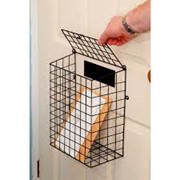

If you have any questions about the above content or any else security related, please feel free to contact me.
See my customer testimonials here
Thanks for reading
It’s that time of year again when the weather starts to do funny things to our doors. I am already being called out to do jobs that could be avoided with some basic maintenance for your locks.
Here on the Norfolk Coast, locks are not only at risk of rusting, but also damage from sea salt and wasps (more on those later).

So what can you do to avoid having to call me, or at least make the call a bit cheaper?
Firstly, keep your door (and window) locks clean. It’s very easy to forget about the front edge of a door when it is shut while you clean, but I see some shocking sights in my work. The more dirt and dust is allowed to build up, the more it finds its way into the working parts of your lock eventually causing damage.
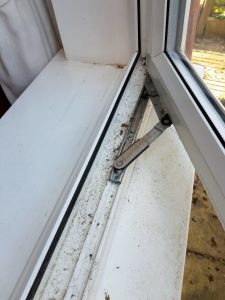
The next step is oiling your locks. There is a lot of argument in the locksmithing world as to whether WD40 or graphite is better. For me, I say WD40 used twice a year (every time you change your locks is an easy way to remember and perfect for changes in weather) works just fine because it coats and flushes at the same time. Oiling does not mean just squirting a bit of oil where you put your key in the lock. If you have a wooden door with a mortice (“Chubb” type) lock, then the part inside stops the oil getting to where is needed and if you have a lock with a “Yale” type key, then oil in the key way is only getting a tiny percentage of what needs to be oiled. If you have any lock with a latch, either pull the handle down or rotate any lever knob to retract that latch. If you look where the latch retracts, you will see that the wedge shape of the latch will create a perfect gap for you to put in the straw provided with cans of WD40. Squirt for about 5 seconds (10 seconds if first time) and then work the handles, etc a few times to get the oil all over the insides.
On doors with multipoint locking systems (eg UPVC doors) you should also look at the front edge and lift the handles up and down a few times. Give another squirt of oil to anything you see moving. When you do this, you might even find the sticker that tells you to oil the door that you never knew was there and the installer never told you about! If you have a wooden door with a single deadlock, unscrew the faceplate at the front and take it off. This will now give you a larger gap around bolt. You might have to hold the WD40 straw in one corner, but squirt what you can, being aware you might get some splash back at you and oil does not clean up from clothes easily, so no maintenance in your wedding dress/designer suits. Don’t forget to put the face plate back on afterwards. In all cases, put some rags on the floor as oil will run down and drip off the bottom of the door and WD40 even stains paving stones.
Once you have done all the above, keep an eye on how difficult your door is to open. Hotter summers are warping even doors that never recognisably warped before. If your door is becoming difficult to operate in any way, there will be undue stress on various parts of your lock which will eventually lead to something breaking. The most common problem last year was French doors shrinking away from each other and the hooks of the multipont mechanisms not being able to get into their slots. Multipoint mechanism doors are usually adjustable, if your door is not as easy to operate when closed as it is open, best get the door adjusted before something breaks and you will have to add a locking product on to the cost of the adjustment.
Finally, those pesky wasps. If you have a wooden door with a multipoint locking system (lift the handles to lock) and it does not have top and bottom bolts, there will be a gap at the top behind the metal faceplate. This gap runs down behind the faceplate as far as the first moving part you can see. It is the perfect size for wasps to make cells in which to grow more baby wasps. Those cells harden a lot and can cause the mechanism to break. My advice is to at least put insect repellent all over the top of the door and then maybe stick a small cotton wool ball just in the top to bar access. I’ve dealt with a few of these cases now, and I really don’t like angry wasps trying to get me while I destroy their hard work!

If you have any questions regarding the above information, please don’t hesitate to get in touch by phone, text or email.
Thanks for reading.
What I have learned after 10 years as a Locksmith?
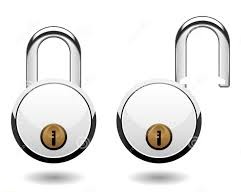
Lessons 10 years as a locksmith has taught me:
1. The multipoint locking mechanism on a double glazed door (or any door where you lift the handles before locking) is NOT a five lever lock. Five levers refers to the internal levers in a mortice lock which sits inside a wooden door.
2. All of those hooks, bolts, mushrooms, and rollers on a lift handle door mean nothing when burglars can attack the lock barrel easily. Having the correct barrel is vitally important and while you might get the insurance company to reimburse your financial loss, they cannot replace the heirloom given to you by Grandma that has enormous sentimental value. If your locking barrels do not have British Standard kite marks, you are practically inviting burglars into your home.
3. Home security is not necessarily about keeping intruders out. We all know they can smash a window. But they do not want to leave through that window carrying your stuff. You are looking to make it as hard as possible for them to leave with their arms full.
4. Look at your neighbour’s house when thinking about home security. Your aim should always be to make them look like an easier target. Crunchy gravel, CCTV, alarms, sensor lights are instant barriers before they even reach your door. Burglars recognise good locks and will go elsewhere. Your local locksmith knows the best brands you can’t buy on the high street.
5. That sneaky place you hide a spare key in the garden is glaringly obvious to the burglar. You are much better off with a quality keysafe.
6. You do not need multiple keys for carers. A keysafe can be much cheaper and easier for all. No more worries when keys go missing.
7. A home safe is not just about deterring criminals. A good one will protect important documents in the event of a fire. But batteries should be changed annually whether the low battery warning beeps or not, and override keys should be kept with a trusted neighbour or family member. Leaving the keys inside the safe is not a clever idea.
8. Taking your car on holiday? Make sure your partner takes the spare key. Nothing worse than calling a locksmith to open your vehicle when you lock the keys in the boot knowing a spare key is at home. Do not leave the spare key in the glove compartment.
9. Very few smart locks conform to BS3621, meaning they are not covered by your insurance.
10. Most lock failures can be avoided. If you notice your lock is getting harder to operate, or you have a special knack for opening the door, then something is wrong and needs addressing. It will be cheaper to sort now and if you don’t, the chances are it will fail when you are stuck in the pouring rain and are desperate to get in because you need to get ready for that important date/job interview/wedding/etc.
11. Hanging keys on a hook in plain sight of your door, or putting them in a dish/on a saucer near the front door is not good. Most luxury cars are stolen from drives after thieves use tools to hook keys through the letterbox. Seal the letter plate on your door and install a post box at the end of your garden. The postie and those who deliver your paper will love you for it.
12. Burglar alarms are not just about burglars; They now come with optional extras like smoke alarms and panic buttons allowing you to call a family member and talk to them through the system if you take a fall and cannot get back up.

13. Modern CCTV puts you in control. If you post images or film of a crime, the local community might help. A friend knew someone who did this when Christmas decorations were stolen from their garden. The theft was captured by a smart doorcam and posted. Locals soon identified the thief and the stolen items were returned (along with a box of chocolates!).
14. If you need to get copies of keys made, still use the originals as your primary keys. Ask your local key cutter to order genuine branded blanks, even if it costs more and you have to come back. 90% of my recalls for faulty locks end up being poor copies not working properly. When you order a new lock, think about the number of keys you need, and order them at the same time. If you need more than four extra keys, a keysafe can be cheaper.
15. Plastic doors are just as prone to weather conditions as wooden doors. Be aware of direct sunlight and salty sea air. Check regularly for signs of rust. Lubricate your doors every time you change your clocks (spring and autumn). You can find out how by reading my blog on door maintenance.
16. The industry recommends changing your locks every 5 years, especially when keys have been handed to builders, carers, lost by teens, etc. While 5 years might seem a bit too much, adult children might do well to check their older parents’ locks. Many older houses are simply not up to insurance standard. If you cannot find a British standard kite mark on their lock, they are probably paying insurance for nothing as the insurers will not pay out in the event of a burglary.
17. Making a new car key when you have one to copy from is much cheaper than calling out the emergency locksmith when you are stuck in the rain and locked out of your vehicle because you just dropped your car key down a drain. And some cars, like Fords, will require you to make two new keys when all keys are lost as the car will not start without two keys programmed and the process automatically deletes all existing keys.
18. Cloning a car key means any lost/stolen keys will still start your vehicle. Making new keys allows you to ensure only the keys you hold will start the vehicle.
19. Car keys have a huge difference in prices from vehicle to vehicle for many reasons. Some can only be reproduced with genuine branded parts. Others require the removal of the dashboard in order to read a certain computer chip. While most can be done on the day, you might find yourself without the use of your vehicle for some time. Another reason to have a spare key made when convenient rather than leave it to an emergency.
20. Everything comes in all shapes and sizes. Locks are no different. Beware of what you buy in shops or on the internet as they might not be the easy DIY job you were expecting. Always consult a professional locksmith. For example, lots of internet-based car key makers advertise Landrover Discovery keys, but these can only be produced by the manufacturer. In the home, only Chubb branded locks fit exactly into the place where a Chubb lock has been before. Any other brand will need carpentry work and movement of handles (which might expose paintwork that needs touching up that might lead to the painting of the whole door, meaning a quick job becomes a whole day event).
Thanks for reading. Please call us to find out more or ask any questions.
07846643176
How safe is your safe?

Recently, I have been having a few calls from customers asking me to gain entry to their safes. Either codes have been forgotten, keys have been lost, or batteries (in electronic safes) have been allowed to run down to flat.
Within the locksmithing industry, opening safes is a whole extra level of learning and the courses, along with the correct quality tools are rather expensive. This in turn makes the cost to the customer quite expensive as well. In Norfolk, there are just not enough customers for me to take on the extra expense. To make it worthwhile, I would have to put up my normal prices, and I am trying to keep as competitive as possible. While there are other locksmiths in Norfolk who will gain access to your safe, and I will be happy to guide you to them, safe opening is not something I generally do. There are exceptions, however. If your safe is small, the chances are I can get in through destructive methods and provide a new safe for a similar cost to the safe specialist simply gaining entry (they might also use destructive methods and charge more).

Better still, good practical maintenance of the safe is always the best course of action. A common scenario is when an elderly relative passes away and the family discover that the safe with all the important documents is battery operated and the batteries have long since gone flat because they were never changed. If you have elderly relatives, remind them to change the batteries yearly. Make sure you have at least two keys and they are stored in places where they cannot be damaged. One key should be kept at another safe location. I have had a case where one key was lost and the spare had been kept….in the safe itself (a common mistake with spare car keys as well – keeping the spare key in the glove compartment is not a good idea)! Simply opening the safe on a regular basis just to make sure all the levers seem to be working good, is also good practice. And always observe the “you get what you pay for rule.” If you buy a cheap safe from the high street, the chances are it will not last.
While I have said I do not generally gain entry to safes, I do provide and install all sizes of safe from the small ones that will hold documents to commercial sizes. I recommend that any household safe be replaced every ten years at the very maximum. I am also happy to arrange annual safe maintenance visits and do the things like battery changes that many people seem to forget. My aim is to make sure you can access your valuables when you need to by having the work done when it is economically convenient, rather than face a high call out fee at a time when you least need it.
Should you require a free consultation about safe installation, or just a question about the above or any of my other blog subjects, please do get in touch via any of the methods on my contacts page.
Thanks for reading.







